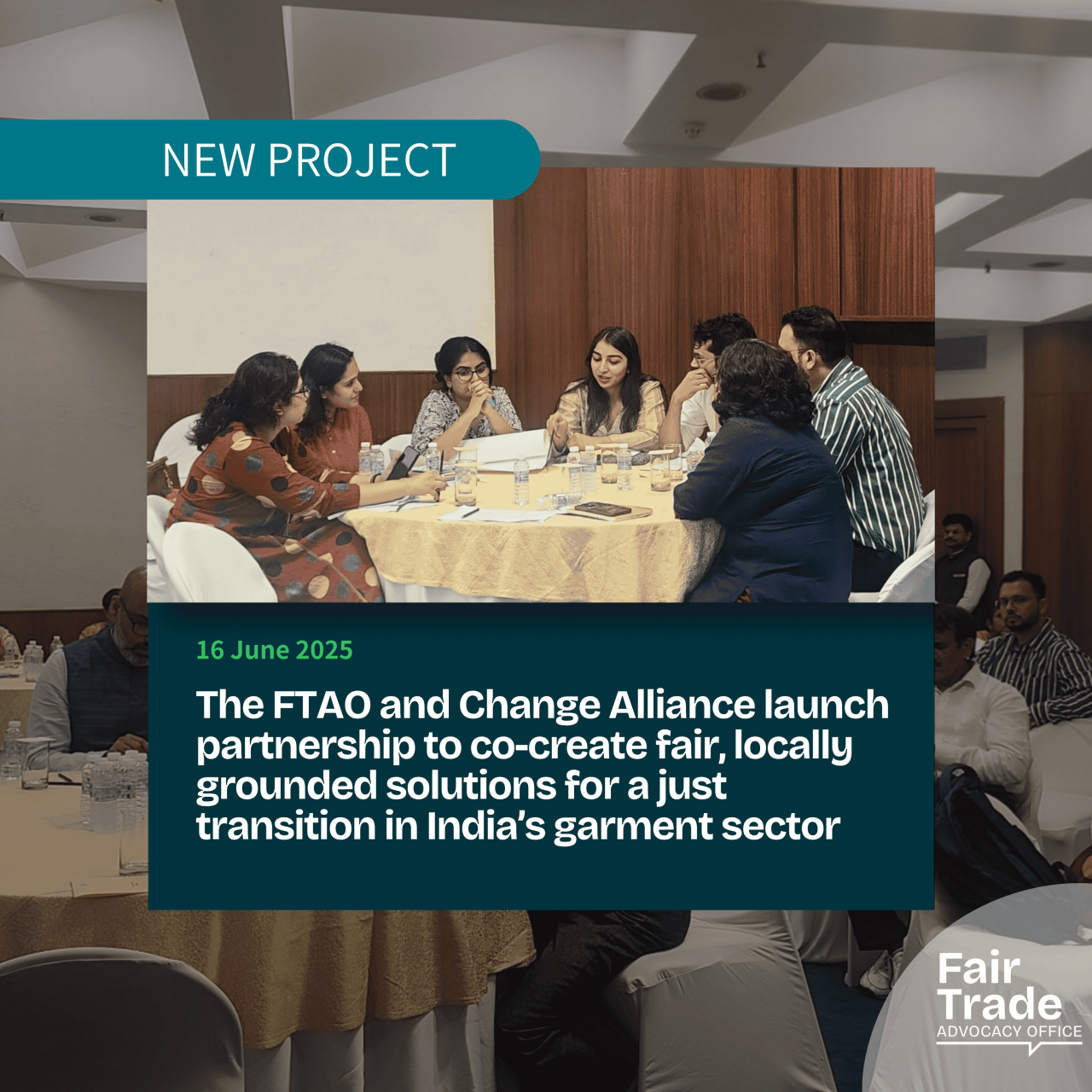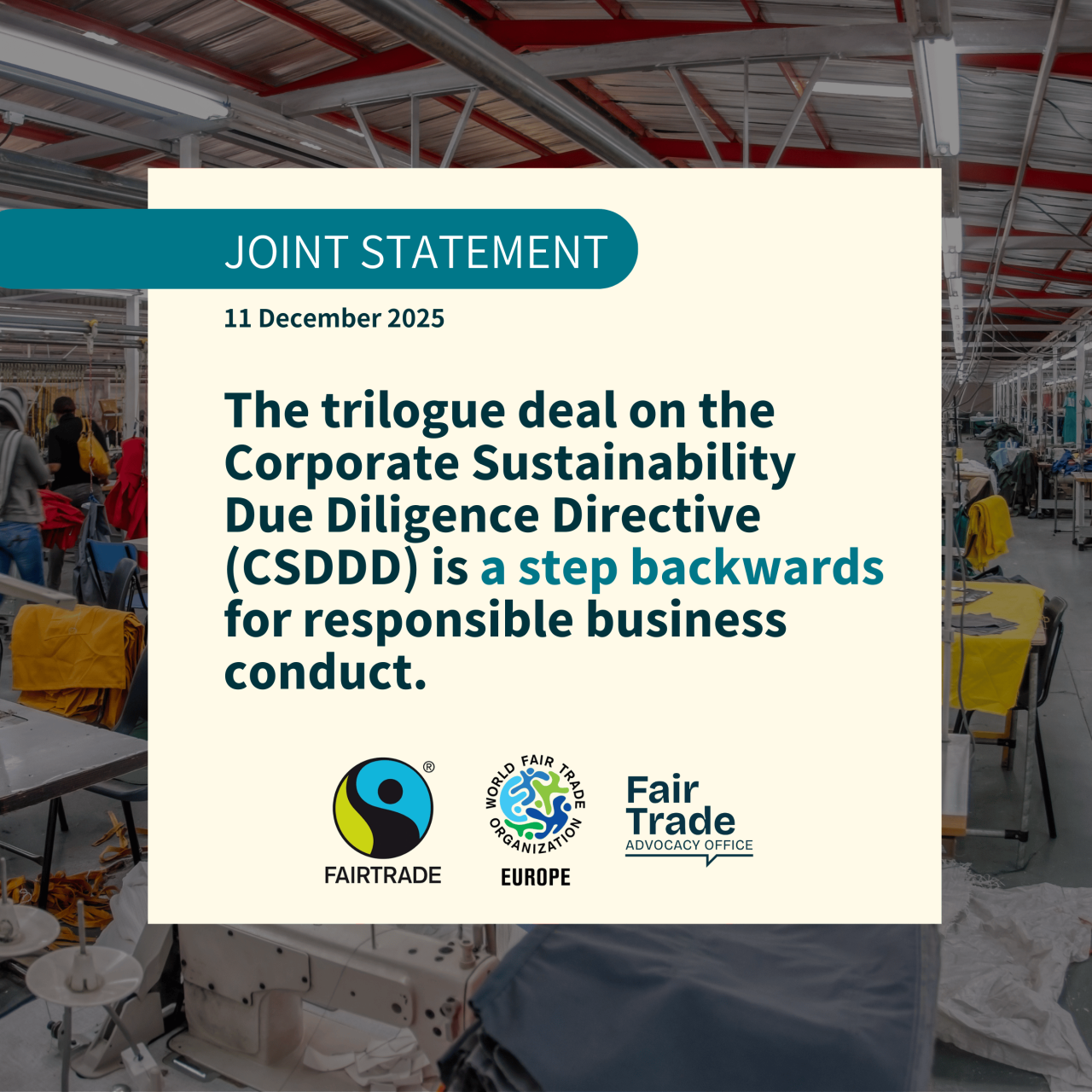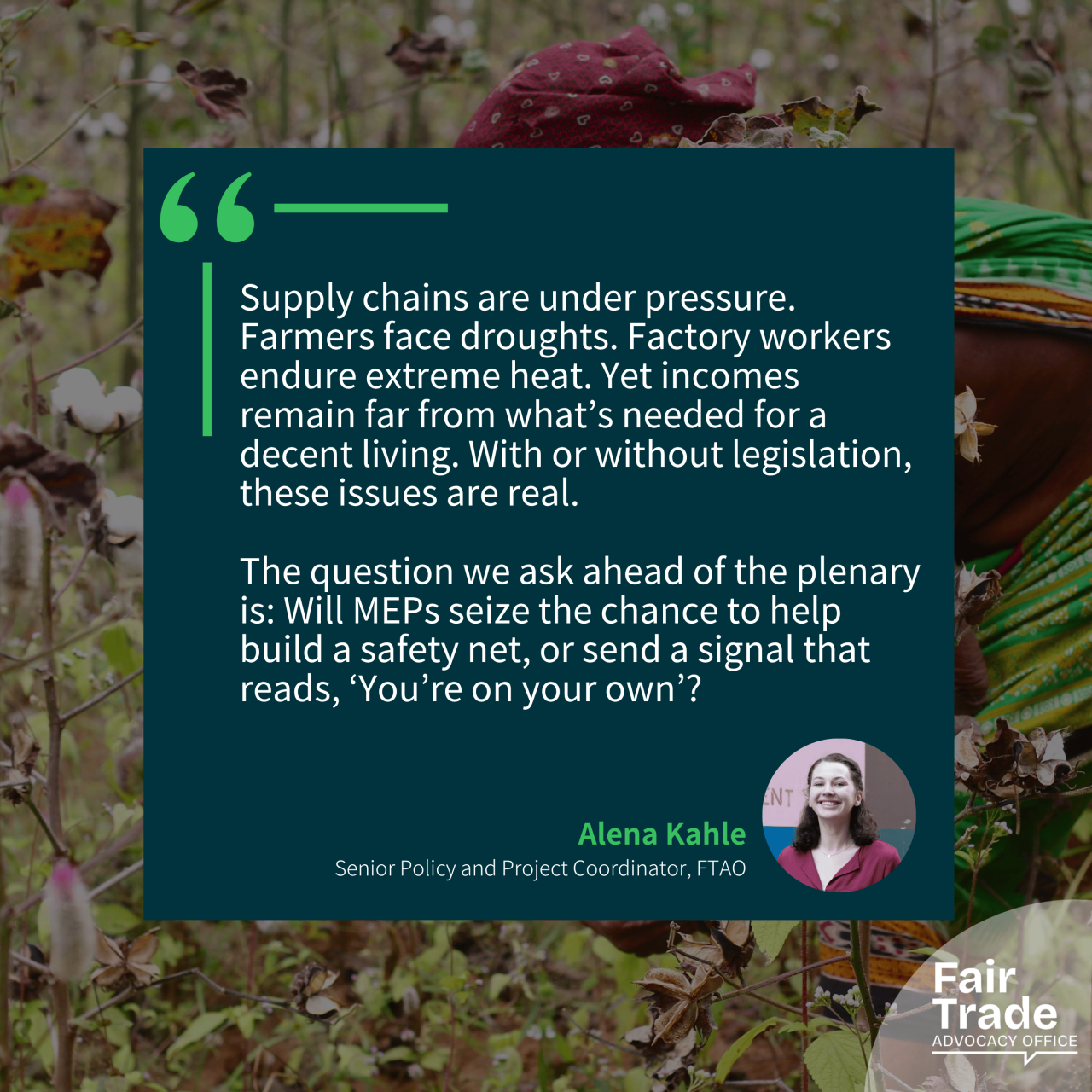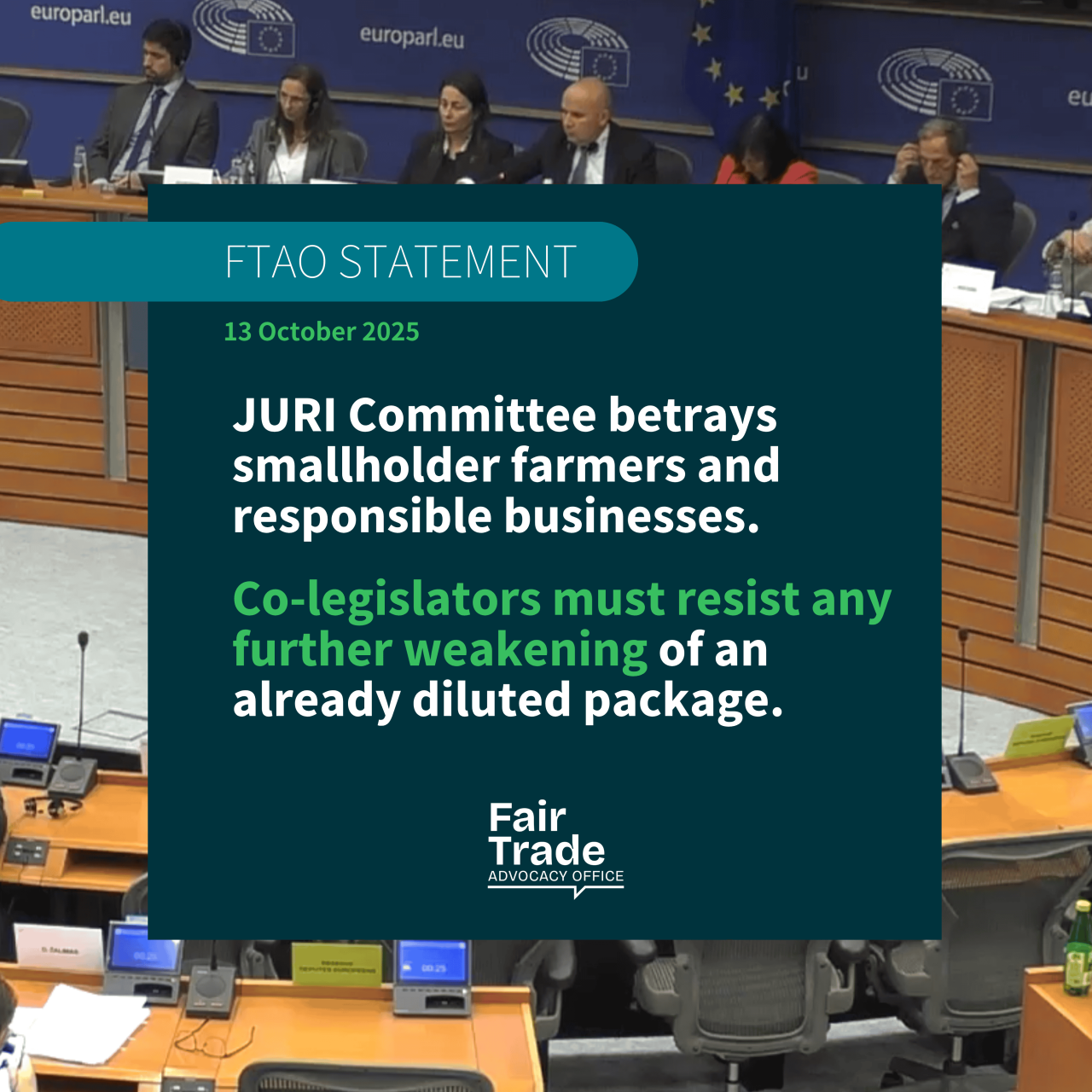Co-creating responsible business solutions in India’s garment sector

The Fair Trade Advocacy Office (FTAO) is proud to announce its collaboration with Change Alliance India in implementing a series of multi-stakeholder consultations aimed at advancing responsible business conduct in India’s textile and garment sector. The project brings together civil society organisations, trade unions, suppliers, farmers' representatives, brands and government stakeholders to co-create locally grounded solutions to embed fair and sustainable practices at every level of the textile supply chain.
Building on Change Alliance’s sectoral knowledge and the FTAO’s policy expertise, this initiative aims to support India’s efforts to enable a just transition in the textile industry, with a strong emphasis on local ownership, capacity strengthening and inclusive dialogue.
India’s textile and garment sector directly employs over 45 million people, according to data released by India’s Ministry of Textiles, many of whom are women and informal workers. As a key player in the global supply chain, India’s approach to sustainability and equity can inspire ripple effects across borders. The project’s goal is to deepen the dialogue between different supply chain actors and support stakeholders in co-creating locally grounded solutions that can serve as valuable models for other countries navigating similar challenges.
Over the past months, Change Alliance has conducted three in-person multi-stakeholder consultations in Delhi NCR, Bangalore and Tamil Nadu, convening a wide range of actors to identify potential solutions and develop practical action plans to improve supply chain transparency, ensure meaningful stakeholder engagement, promote fair purchasing practices and explore pathways towards living wages and incomes.
The workshops prioritise co-learning and local ownership, grounded in the principles enshrined in India’s National Guidelines on Responsible Business Conduct (NGRBC) introduced in 2019, as well as other established international standards such as the United Nations Guiding Principles on Business and Human Rights and OECD frameworks. The process aims at identifying specific opportunities for collaborative progress between supply chain actors as well as providing specific recommendations to inspire policies that truly support responsible business conduct in garment supply chains.
Over 115+ individuals have taken part in the consultations led by Change Alliance, with the support of the Fair Trade Advocacy Office, which have brought to light a number of pressing concerns, including:
- Voluntary guidelines on responsible business conduct have shown limited effectiveness in ensuring genuine accountability;
- Purchasing and contractual practices must be addressed to ensure better cost distribution in supply chains;
- Suppliers need support to navigate ESG expectations, as there is limited awareness on what is voluntary and what is mandatory within the ESG landscape, especially in relation to ensuring decent work practices.
- Urgent attention is needed to improve workplace conditions and reduce excessive buyer pressure;
- There is a need for genuine, accessible grievance mechanisms and stronger representation of workers' voices.
Preliminary insights underscore the urgency to address unilateral suppliers’ codes of conduct, which if implemented punitively often pose serious risks to workers’ physical and mental health: “The kind of pressure that big brands are putting on small suppliers… is leading to huge violations at the ground level”, a participant pointed out.
With suppliers expected to comply with buyer countries’ standards (e.g., European Union or the United States) beyond their own national laws, a stakeholder highlighted the importance of shared responsibility and the need for burden-sharing: “If I have to follow the law of America or Europe… who will compensate for the gap?” Suppliers mentioned that brands often say they will shift to another country if they have to pay even a little more. “It’s particularly demoralising when brands say it is too expensive to work with us as suppliers and that they would rather source from another country,” one supplier highlighted.
Workers are largely unaware of initiatives such as Human Rights Due Diligence (HRDD), and concepts like living wages and living income are still new to them. “Most laws are made either at the central level within a country or at the international level. We don’t feel included, and it often seems like our voices don’t matter, even though we are central to the supply chain. When it comes to living wages and income, we are still struggling to earn just slightly above the minimum wage. The wider ecosystem must understand that without us, there would be no product to buy, procure, or sell. Initiatives like this are crucial in helping our voices break through the high and often closed walls of policymaking, so that we can finally have a seat at the table,” a worker representative emphasised.
While further analysis is still needed, these conversations underscore the importance of bottom-up initiatives that ensure local realities shape global frameworks, not the other way around. The insights gathered in the multistakeholder consultations will feed into a comprehensive report due to be published later this year. A key outcome of the consultations is that they sparked genuine interest among workshop participants to stay engaged in ongoing policy discussions. Many participants also expressed a strong interest in attending capacity-building sessions to deepen their understanding of key concepts and contribute to improving overall working conditions for workers.
The Fair Trade Advocacy Office looks forward to continuing this vital work with Change Alliance and our partners in India and to supporting a more equitable and resilient future for garment workers and supply chain actors.
Get in touch:
For more information about the project, please contact Alena Kahle at kahle@fairtrade-advocacy.org
For more information about Change Alliance India, please visit: www.changealliance.in
 (3).png)
More From The Workstream

Trilogue deal on CSDDD is a step backwards for responsible business conduct

JOINT STATEMENT: Call for European Parliament to deliver a credible and ambitious approach on Omnibus I

Fair Trade Movement urges MEPs to seize the opportunity to strengthen CSDDD in upcoming plenary vote
